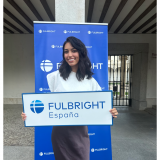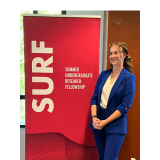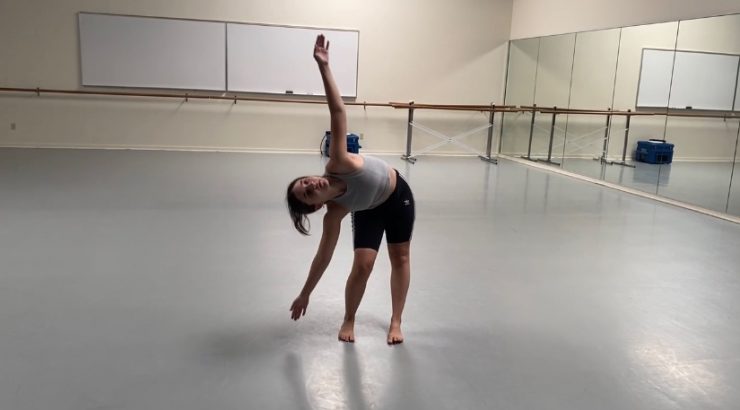
SURF Spotlight Lauren Bramlett - Combining Dance and Rhetoric Through Analysis of Concert Dance Pieces from 1950's and 60's
January 25, 2022
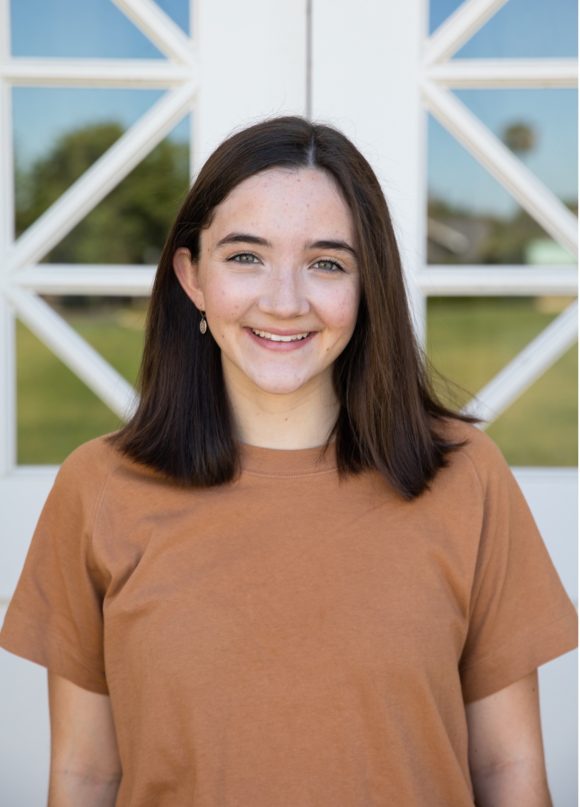
Lauren Bramlett (’23)
Since high school, Lauren Bramlett (she/her) has been searching for a way to connect her two passions – dance and English. Before college, she believed they were distinctly different because dance is defined as expressing oneself through their bodies. At the same time, English studies how one expresses various things through words, showing how there is not much overlap. Yet, there was a lingering curiosity in the back of her mind that pushed Bramlett to keep exploring the cross-section of these two topics. In college, she searched for answers through rhetoric classes and indulged in more research projects, where she finally realized how there is much more crossover than imagined.
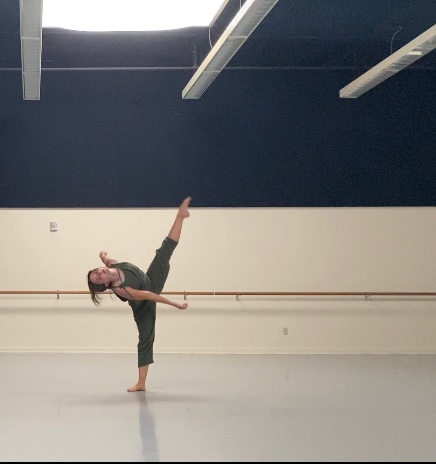
Lauren Bramlett (’23) exploring dance movements in the studio
Bramlett applied and was accepted into the Summer Undergraduate Research Fellowship (SURF) program for 2021. SURF is a paid, eight-week program overseen by the CUE that connects students to faculty mentors to work on research or creative projects during the summertime. During SURF, Bramlett completed a project titled “Movement Matters: The Rhetorical Power of Dancing Bodies,” She sought to understand choreographers’ usage of bodily movement as a form of activism, observing how and why bodies act as rhetorical agents.
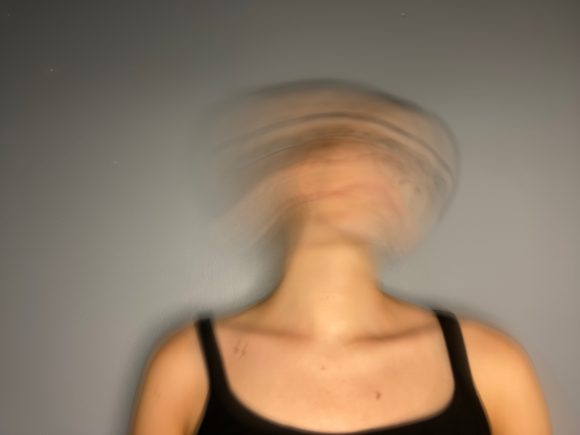
Lauren Bramlett (’23) putting emphasis on the head as a powerful rhetorical body part
In this project, Bramlett used Mikhail Bakhtin’s theory of dialogism in conjunction with the theory of new materialism. More precisely, the aspect of shared conceptual horizons to rhetorically analyze dance pieces. In simple terms, the concept is that everything has meaning, but everything has a different meaning to everyone. When connecting this to protest art, for example, a dance about acquired immunodeficiency syndrome (AIDS), Bramlett explains, “someone who is very homophobic is going to have a very different conceptual horizon of that piece versus an individual who knows someone that has AIDS.” With this understanding, she was looking at how choreographers would use bodies to communicate meaning, even if it would not be the same for every person. Specifically, she observed the works of mainly black choreographers during the civil rights movement analyzing how they would use a dancer’s body to inform people to promote social change despite their shared conceptual horizons. Further, she questioned how the dancer’s body interacts with itself, the audience, and other dancers and what kind of meaning can be produced.
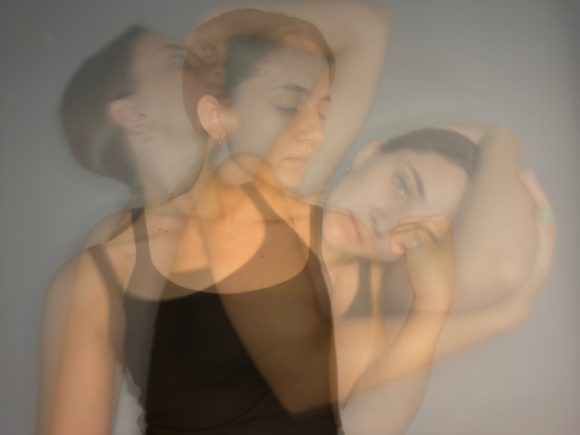
Lauren Bramlett (’23) emphasizing all body parts with most rhetorical power
Upon countlessly re-examining 25-30 pieces of concert dances from various choreographers, Bramlett found a pattern in how the dancer’s hands, chest, and eyes were three of the most rhetorically powerful locations on the body in protest art during this time. She was able to explore this further through her own body and movements, which she presented as a performance piece at the SURF conference. Bramlett concluded from her findings that the movement of dancers contributes to the direction of social change and that the human body is an accessible and effective vehicle of rhetorical power.
Bramlett’s unique topic and willingness to share her story will undoubtedly inspire a new generation of researchers from the arts and humanities fields. When asked about advice she would give to fellow humanities researchers, Bramlett explained, “the most important advice that I can give is no matter how obscure, or random you think your interest might be, just know that there’s someone out there probably doing something similar or something that you can use as a jumping-off point. There’s always relevance to everything, and if you’re interested in it, there’s someone else out there as well, so don’t ever doubt that.”
Prior to taking part in SURF, Bramlett was unsure whether she would want to go into the world of research, or even if she wanted it to be a part of her career ever, but she explains how now there is no question about it. She further adds, “I always thought I would go into the dance performance industry right after school because I could always come back to English and academics, but I think I realized just how much I enjoy doing research and academic work through SURF. I don’t know exactly what that entails, but I always want to be doing something that is academically stimulating.”
In addition to conducting research and being an outstanding dancer, Bramlett is also a student scholar ambassador on campus. If you’re interested in connecting with her through a peer advising appointment, check out the ambassador page or email her at lbramlett@chapman.edu.
Feel inspired to apply for the Summer Undergraduate Research Fellowship? Applications for the summer of 2022 will be opening soon! Deadline to submit will be in February. More info can be found on our CUE website regarding eligibility and deadlines.
Interested in applying for other future fellowship, scholarship, and grant opportunities? Make sure to follow us on facebook and instagram for updates and more information. View or website or email us at cue@chapman.edu
